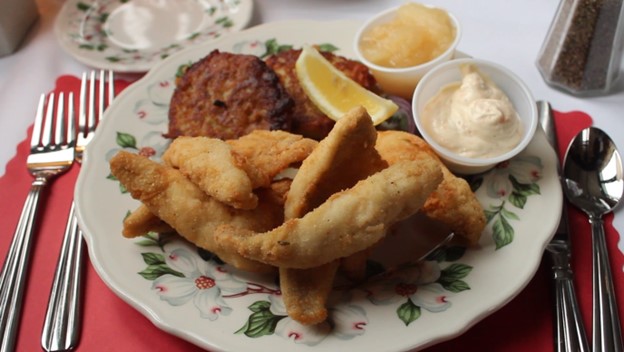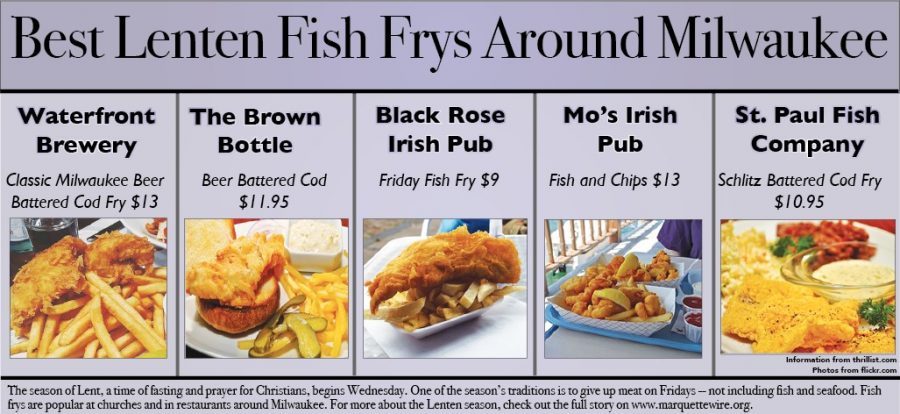In Wisconsin, Friday fish fries are more than just a meal; they’re a tradition in the state’s history and community. What started out as a minority religious practice has become a year-round mainstay in Wisconsin food culture.
Christina Ward, a Milwaukee-based food historian and author, explained the history behind Friday fish fries in Wisconsin, tracing its roots back to Catholic immigrants who had a religious obligation to not eat meat from land animals during certain times of the year.
“The Friday fish fry became popular during a time when meatless Fridays were observed by many Catholic communities,” Ward said. “In Wisconsin, with its abundance of freshwater fish and strong German and Polish populations, it naturally evolved into a weekly social and culinary ritual.”
During the Prohibition era in the 1920s, fish fries offered taverns a creative way to keep customers coming despite the alcohol ban. The owners would host Friday fish fry dinners which created an atmosphere for families to gather and bring in steady business. After Prohibition ended, the tradition remained and turned a Catholic practice into a global cultural ritual.
“The fish fry became not just a meal, but a way to gather,” Ward said. “It’s where families and neighbors came together after a long work week. It became part of the rhythm of Wisconsin life.”
Today, you can find fish fries served everywhere from longstanding Milwaukee restaurants like The Packing House and Swingin’ Door Exchange, to fast food chains such as Culver’s and Long John Silver’s. Despite the widespread popularity of a fish fry, it still maintains a connection to its Catholic roots, as it is enjoyed more frequently during the season of Lent.
At restaurants like Jack Pandl’s Whitefish Bay Inn, the dining experience has a nostalgic feeling. John Pandl, the owner, said that the tradition has blossomed into more than just the food itself, but rather relationships fostered from a common tradition.
“It’s a much more spontaneous society where people eat on the run, and they don’t have two hours to sit down, hang out with family, and that’s kind of what we push is to enjoy your meal, take your time,” Pandl said.
That legacy is likely to continue through his son Ryan, who grew up in Whitefish Bay and expressed his desire to uphold the family business and its significance to the greater Milwaukee community.
“He’s (John Pandl) not going to work here forever, as much as I’d want him to. I need to start learning from him while I have the chance,” Ryan said.
In a society where food trends are changing, the Wisconsin fish fry tradition has stuck around, and its legacy is more than just a meal. It honors the past and celebrates the connection between generations of friends and families.
“There’s something really beautiful about how fish fry became a shared experience,” Ward said. “It doesn’t matter where you’re from- you sit down, you eat, you talk and you are part of something bigger.”
This article was written by Yana Himelhoch, Mikey Severson and Joseph Schamber.








